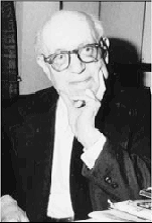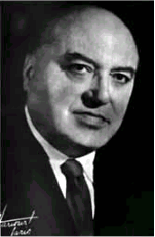Bio-Terrain audting - backgroundBio-Terrain Auditing synthesizes the primary contributions of the greatest minds in health science of the past century into a cohesive system of holistic health management. Merging the best of the greatest scientific minds and their clinical methodologies into one coherent system for health care management.
Utilising the genius of individuals like Prof. Louis-Claude Vincent, Dr. Carey Reams, Emanuel Revici, MD, Wilhelm Schüssler, MD, George Watson and others. Sequencing the best of their strategies into a hierarchal structure that logically points you to the most important interference patterns causing problems in fluid dynamics. The works of Emanual Revici
|
|
A 19th century physiologist, Professor Claude Bernard, believed that the environment of the cell, which he termed the milieu intérieur, determined the cell's function and integrity.
Around 1935 the French hydrologist Professor Louis-Claude Vincent became interested in measuring parameters reflective of human health. He invented la Méthode Bioélectronique Vincent. After much research in collaboration with Dr. Jeanne Rousseau, Vincent's first Bioélectronimètre became operational in 1948. Prof. Vincent correlated the electrical values of pH (potential hydrogen - acid/alkaline balance), rH2 (oxidation--reduction potential), and R (resistivity - level of electrically conductive ions) to the body fluids of blood, urine and saliva. The application of this correlation in classical biological Terrain analysis yields nine numbers or parameters that are used in establishing the condition of the biological Terrain of the body. Independent of Vincent and Rousseau, biomathematician Prof. Janos Kemeny actually proved the basis of Méthode Bioélectronique Vincent; Kemeny's work was published in Bulletin der Akademie der Wissenschaft, Berlin, February 1953: "Beitrag zur physikalischen und mathematischen Erklärung der Reaktionsvermögens der lebenden Organismen". Professor Louis-Claude Vincent concluded at the second International Convention for Medical Electronics in 1959, that the key to understanding health was through monitoring and controlling the body's building blocks which are found in the body fluids (Palais de l'Unesco, Paris). The biocellular environment determines the body's tendency toward developing various metabolic imbalances that can lead to disease. This is a scientifically based, clinically reproducible research procedure which displays the "soil" values for living organisms. Variations away from the "norm" are indicative of an individual's "predisposition" to different pathophysiological states. |
The work of Carey ReamsCarey Reams was a consummate scientist with an inquiring mind. While attempting to solve a riddle for a neighbour whose young three and a half year old son was having constant seizures that medical doctors could do nothing about, he had what might be called a spiritual epiphany of scientific proportions.
Dr. Reams uncovered what he believed to be the mathematical equation for perfect health in the human body. Though the final numbers of the equation can be ascertained through specific research methods, the totality of the relationships that lead up to the final tally is probably beyond complete apprehension. Nevertheless, the results of the method are incredibly useful for defining balance in the body. (About the neighbour boy, his seizures ceased once the imbalance was determined and corrective measures were taken.) The methodology known as the RBTI or Reams Biological Theory of Ionization, uses procedures from the world of organic soil testing. As we humans are derived from the dust of the earth, it makes sense that correlations exist. Dr. Reams defined the correlations exquisitely by looking at body fluids which are easy to get - urine and saliva. |
The work of Dr T.C McDanielThomas C. McDaniel D.O. is a Doctor of Osteopathy. Milestones in his career include:
Dr. T.C. McDaniel was a mere 56 years old when he was having severe cardiovascular problems. His heart was constantly skipping beats. He went to the best heart experts in the field, and they could not help him. He searched for answers and discovered the concept of zeta potential. It was a revelation. Blood, which is a suspension, begins to sludge "clot" unwantingly as zeta potential falls. Zeta Potential is the measured ratio of an-ions to non-ions and cations in the body's circulatory Terrain. Armed with this information, he compounded and took his own "anionic surfactant solution". He drank more pure water, eliminated the bad cations from his diet, and his PVCs disappeared. Dr. McDaniel practiced medicine in Cinncinati, OH for more than 55 years. He taught many medical practitioners and clients the principles of Zestful Wellness. Currently, he resides in Arizona and is doing very well at the age of 97. Dr. McDaniel wrote the book, Disease Reprieve - Living Into the Golden Years, that illustrates the knowledge he uncovered and how he has put it into practice. Today, Dr. McDaniel is 97 years old and is still active. He shows people how to eliminate many health problems in their life. This is knowledge which is not taught in medical schools and is unlikely to be taught there anytime soon. This is why Dr. TC McDaniel dedicated his life and resources to instruct physicians and inform the public in order to put us On the Path to Zestful Wellness. Dr. McDaniel is noted as the father of Zeta Protocol to Zestful Wellness. Dr. George Watson - Nutritional Psychiatry for emotional health & cognitive performance |
|
As is often the case with research, George Watson made an unexpected and intriguing discovery that was completely unrelated to the purpose of his work. He was studying the effects of various vitamins on the sense of smell and found that many of his subjects were having significant psychological reactions to them. Deciding to pursue this further, Watson began to study the effects of vitamins on people diagnosed with mental illness.
Watson’s research with vitamins eventually led him to the discovery that the food we eat can also have a significant psychological impact. Through 10 years of thorough research, he was able to categorise his subjects into one of two groups based on test results such as blood pH, blood sugar, and carbon dioxide level and also their reactions to various foods and specific nutrients. All of these characteristics provided a strong indication of each subject’s metabolic tendencies. Of the approximately 300 subjects Watson worked with in this manner, approximately half of them were included in published and controlled trials. The two groups that George Watson established were based on cellular metabolism and energy production. One group metabolised glucose quickly and was referred to as fast oxidisers while the other group metabolised glucose slowly and was referred to as slow oxidisers. The importance of this distinction is that it can have a significantly good or bad influence on a person’s mental wellness depending on the type of food they eat. A Flawed Perspective on Psychiatry At the time Nutrition and Your Mind was published, psychiatry was the undisputed choice of treatment for mental dysfunction. Suggesting nutrition or any other physical factor as the cause or solution would have been considered to be utter nonsense. Although to a lesser extent, the same is unfortunately still true today. Such a strong faith in psychiatry is highly ironic. As Watson points out, the descendants of Sigmund Freud, such as Adler, Jung, and Rank, each had differences in opinion and would each be likely to identify a different cause for the same mental issue. Furthermore, the identified cause would likely be blamed on something outlandish such as repressed sexual feelings towards a parent during the patient’s childhood. How could something so subjective be accepted in such confidence while completely disregarding the actual evidence of nutritional influence? Not Much Has Changed Although it’s unlikely today for a psychiatrist to tell you that your problems are the result repressed sexual tension toward your mother or father, the dominance and subjectivity of psychiatry hasn’t changed much. The American Psychiatric Association has basically invented many of the hundreds of mental disorders listed in the Diagnostic and Statistic Manual of Mental Disorders which is currently the golden standard for psychiatric diagnosis. New disorders are suggested by members of the APA and are then brought to life and added to the DSM through nothing more than a majority vote. In 2006, a study revealed that 56% of the APA members voting on the disorders to be added to the DSM were financially tied to the drug industry. Unfortunately, it’s become extremely common for an average person to complain about sadness or stress and be given a long term prescription and maybe even some kind of permanent diagnosis. This flawed approach is encouraging more and more people to become dependent on dangerous medications and is limiting the awareness of safer natural solutions that may be much more effective. Fuel for Proper Brain Function and Balanced Emotions A balanced and healthy mental state is dependent on proper brain function which, in turn, is dependent on the ability of brain cells to consistently metabolise an adequate amount of energy. Without a steady supply of energy, brain function is likely to become impaired and abnormal emotions are likely to result. There are two major processes that lead to the production of cellular energy. One is glycolysis, which is responsible for about 20% of energy production, and the other is the citric acid cycle, or Krebs cycle, which is responsible for the remaining 80%. As such, the citric acid cycle is a critical part of cell metabolism and is therefore an important aspect of optimal brain function and mental wellness. Glycolysis is basically the metabolism of glucose. As stated above, it directly provides a small portion of total energy, but more importantly, produces the acetate and oxaloacetate required by the citric acid cycle. However, because glycolysis is a poor source of acetate, the citric acid cycle must rely on other sources of it as well. While carbohydrates are the primary source of the glucose needed to support glycolysis, fat and protein provide the additional acetate needed by the citric acid cycle. In addition, neither glycolysis nor the citric acid cycle can effectively produce energy without a sufficient supply of specific vitamins, minerals, and enzymes. As such, the food we eat has a significant influence on our energy production, and in turn, our mental wellbeing. Nutritional Individuality The two types of metabolic tendencies discovered by George Watson are primarily based on glycolysis and the citric acid cycle. Slow oxidisers metabolise glucose slowly and need to consume more carbohydrates to increase glycolysis and balance acetate production. In contrast, fast oxidisers metabolise glucose quickly and need to consume more fat and protein to provide the additional acetate needed to balance the high rate of glycolysis. In either case, the proper nutritional adjustments will help to keep the citric acid cycle running smoothly, provide adequate energy, promote proper cellular function, and ideally, result in a balanced state of mental wellness. George Watson’s research along with the work of William Kelly who discovered the effects of nutrition on the autonomic nervous system represent the two primary aspects of individuality that Metabolic Typing is based on. Although Watson and Kelly were both able to help a majority of the people they worked with, they both encountered cases in which their approach was ineffective. Metabolic Typing greatly reduces this gap by incorporating both approaches and determining which one is best for each person. Furthermore, Metabolic Typing expands upon the mental focus of George Watson’s work and is designed to be a holistic nutritional approach that promotes optimal health both physically and mentally. We All Experience Mental Dysfunction to Some Extent We’ve all experienced unhealthy emotions such as anxiety or depression at one time or another. Although these emotions can sometimes be caused by a true genetic disorder or a traumatic event such as the death of a family member, they are much more likely to be completely unjustified. What George Watson has shown is that the unwarranted occurrence of negative emotions can be prevented through nutritional measures. In fact, Watson’s work has shown that even clinically diagnosable cases of mental disorders such as schizophrenia and severe depression can be completely reversed. If nutrition alone can have such a dramatic influence on serious mental dysfunction, imagine what it can do for the more mild emotional disturbances that many of us experience on a regular basis! A Disappointing Reality One of George Watson’s more memorable research clients was diagnosed with schizophrenia and catatonia. She had been through many rounds of extensive psychiatric evaluation and treatment, but to no avail and was one last try away from being admitted into a mental institution. Watson identified her as a slow oxidiser, and by having her take a specific combination of vitamins and limit the high protein and high fat foods that cause trouble for her slow oxidation rate, her symptoms of schizophrenia and attacks of catatonia slowly but surely became minimal and allowed her to live a relatively normal life. Five years after her recovery, she paid Watson a visit to thank him for giving her new life, but was quite frustrated to report that “when I tell people I used to be a catatonic, that I used to have schizophrenia, they just laugh! I get so mad, but they won’t believe me.” This is such a shame, and unfortunately, not much has changed. Almost 40 years have passed since the publication of this book and most people would still be likely to dismiss such a story. What’s Your Type? If nutrition alone can eliminate the symptoms of serious mental disorders, imagine how much impact it can have on the common and more mild forms of emotional dysfunction such as depression and anxiety? It’s truly amazing how much of an impact optimal nutrition can have on your physical and mental health. The Bio-Terrain Audit process will help you discern your metabolic type, as well as other highly significant and interrelated factors influencing your physiology, to help you uncover what Your body's needs are and how you can make intelligent changes in your diet and supplementation to restore balance and tap into the massive amount of potential energy your body carries around with it every day. |




